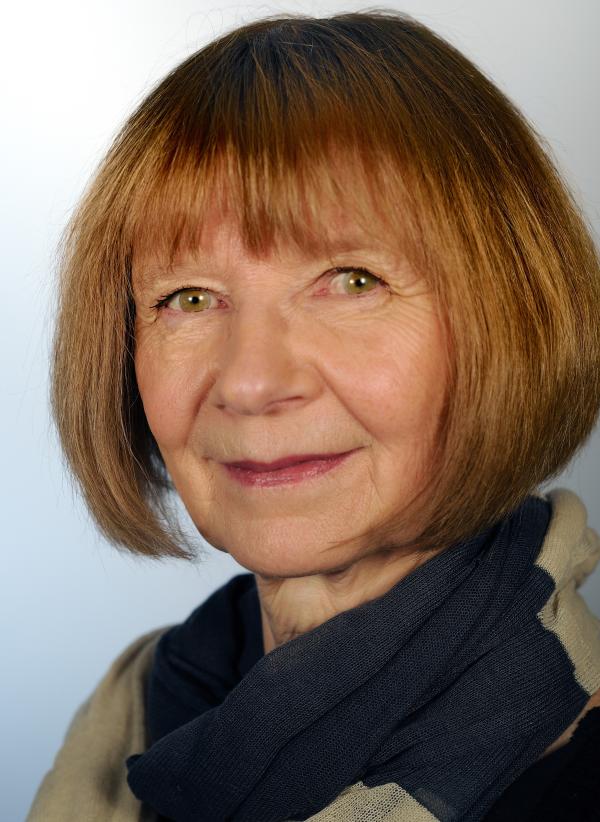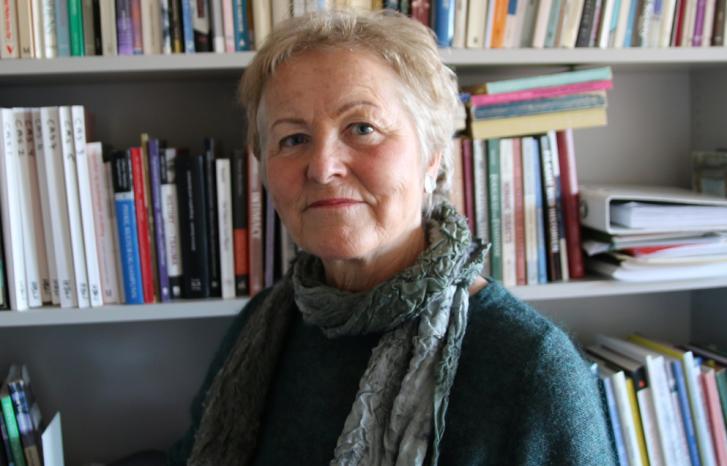“We found no connection between the various models for family policies and men’s orientation towards family,” says Maria Olsson, social psychology researcher at UiT the Arctic University of Norway.
Last spring, Olsson defended her PhD thesis about the underrepresentation of women in high status jobs and the underrepresentation of men in unpaid social work.
Paternal leave does not affect men’s plans
One of the studies in her dissertation is based on quantitative data from 37 countries in which almost 14,000 men and women between the age of 18 and 30 were asked about their family and career priorities. One of the objectives was to find out how equality policies, gender equality on the job market and cultural attitudes to gender affect their plans concerning parental leave.
“We know that the father’s quota affects the extent to which men actually take parental leave,” says Olsson.

“However, our research demonstrates that it has not influenced young men’s plans and priorities before they decide to settle down with a family.”
She has looked at what makes men more oriented towards social care in their daily life and what plans they have for parental leave before they have children.
“Another important finding was that men with more traditional attitudes to gender plan for less parental leave when they have children in the future, and that women in all the countries included in the survey planned for more parental leave than men did.”
“How would you explain that a more father-friendly family policy nevertheless fails to affect young men’s attitudes to taking parental leave in the future?”
“My research points to how early family orientations influence men’s career ambitions. The plans and ambitions that we have when we are 18 affect us the rest of our lives,” says Olsson.
Fathers who do not take paternal leave are stigmatised
Berit Brandth, gender researcher and professor of sociology at Norwegian University of Science and Technology (NTNU) has studied the cultural significance of the father’s quota for many years together with colleague Elin Kvande. In many ways, their research demonstrates the opposite of Olsson’s findings. According to Brandth, the father’s quota has had a norm-creating effect.
“Several studies of the Norwegian father’s quota have emphasised that it has become a norm, based on the fact that more than ninety per cent of fathers use either their entire quota or parts of it,” she says.

“Taking paternal leave when you become a father has become a matter of course; it has become a part of the social contract. Not taking paternal leave is almost stigmatising, signalling that you are a bad and old-fashioned father.”
Brandth refers to a master’s thesis comparing responses from Norwegian and German fathers.
“Whereas German fathers who took parental leave wanted to explain their choice, the Norwegian fathers were almost unable to understand the question of ‘why’. To them it was just evident.”
Olsson does not deny the fact that father’s quotas in other countries may be a decisive factor, but on a more general level, the study shows no effect of the father’s quota, she explains:
“It is important to emphasise that this is based on comparisons across countries and cultures. It is possible that these family political initiatives may have an effect in some countries.”
Female role models have limited effect
Year after year, Norway and the other Nordic countries have ranked on top of global equality indexes. These indexes measure women’s representation in education, on the job market and in politics as well as their reproductive health. Last year, Norway ranked third among 156 countries. But there is a ‘but’, according to Olsson:
“In Norway, the job market is more gendered than in countries that are ranked lower in the equality indexes,” she says.
“And this is interesting because in Scandinavia we have this idea that we are so gender equal. And we are, in terms of women and men’s representation on the job market, in politics and education. But when we look more closely at the various sectors, women continue to be overrepresented in social work occupations and men in top management.”
Another political objective has been to recruit more women to the natural sciences and high status occupations. In order to reach that goal, there has been a focus on the significance of strong female role models. The idea is to prevent gender stereotypical attitudes about women’s abilities from being a hindrance to women’s ambitions and career opportunities.
Women withheld by gender roles at home
In her PhD work, Maria Olsson went through existing research that assesses the design and development of effective measures.
“One conclusion was that women are held back not only by negative stereotypes, but also by gender roles at home,” she explains.
Ideas that men are better suited for top management jobs or that women are better care givers also affected men’s and women’s plans for parental leave.
“Even among teenage girls we see that many acknowledge their own talents within the natural sciences, but they do not envision a career within the field, as they do not think it will fit in with their future family priorities.”
This is a direct connection between career ambitions and future family orientations. The women who reported high career ambitions also expected to spend less time with their family.
Partner interaction affects career choice
At the same time, Olsson’s research shows that the women themselves are held back by gender traditional ideas about motherhood.
“Ideas that men are better suited for top management jobs or that women are better care givers also affected men’s and women’s plans for parental leave,” says the researcher.
See also: Dad becomes leader, mum becomes mum
In her opinion, the only way to increase women’s interest in untraditional career choices is to acknowledge that women’s choices are made in close interaction with their partners.
“Unless men take an equal share of the responsibility at home and gender roles are changed in ways that make men more care oriented, women will continue to make the same choices.”
It is all about ‘fathering’
Berit Brandth agrees. Although the father’s quota is norm creating, it does not solve all challenges related to gender equality.
“We often have too high expectations related to the father’s quota and its effect. It does not solve challenges related to women’s ambitions on the job market. Perhaps the father’s quota is not so much about gender equality, but more about ‘fathering’, meaning they way in which they practice fatherhood?” she ponders.
The best effect of the father’s quota is seen when fathers take full-time parental leave while the mother spends her days elsewhere
Brandth and Kvande’s research indicates that the father’s quota primarily has significance for fatherhood and fathers’ practice and responsibility of care.
“The best effect of the father’s quota is seen when fathers take full-time parental leave while the mother spends her days elsewhere. In other words, the result of the father’s quota is tied to a number of conditions, and these may vary from country to country,” she explains.
Early encouragement to care
Several attempts have been made to alter men and women’s gender traditional choices, for instance by recruiting more men to social work occupations. In 2020, ten per cent of all Norwegian kindergarten employees were men. There has been a long-lasting political goal to double the amount. The reason for this has been children and the elderly’s right to and need for men’s presence and care.
Maria Olsson’s PhD thesis indicates that such measures only have a limited effect on boys becoming more oriented towards social work:
“My research group conducted a study among Norwegian kindergarten children between the age of four and six, and we found that it made little difference for the children’s care-orientation whether or not there were men around them in the everyday kindergarten life,” Olsson explains.
The researchers measured care-orientation by asking the children what type of job they would like when they grow up or whether they would like to stay at home with their own children.
Boys need to master caregiving
“Surprisingly, the important thing was not to have male kindergarten teachers, but rather how the children perceived themselves,” she says.
“Whether or not they perceived themselves as caring individuals was the decisive factor for how they imagined their future.”
We need to work more actively to ensure that the boys themselves engage in caregiving work. They need to feel that they master caregiving.
Olsson and her colleagues found that the boys who reported that they comforted or helped the other children also said that they would like to be at home with their own children when they grow up. In her opinion, this is of significance for the development of gender equality policy:
“In Norway, we try to encourage a caring behaviour among boys. My findings indicate that it does not perhaps help to tell them that ‘other boys can also do this’, but rather that we need to work more actively to ensure that the boys themselves engage in caregiving work. They need to feel that they master caregiving.”
Nature or nurture?
In many countries, Norway included, researchers see that both young boys and adult men are less family and care oriented than women. According to Maria Olsson, we do not know much about why this is the case.
Could one explanation to the stubborn gender roles simply be that people choose in accordance with their biological dispositions?
“Since I have studied gender differences, I often come across evolution psychological explanations. These explanations say that men and women’s preferences are affected by a historically gendered work distribution according to which men were hunters and women were gatherers,” Olsson explains.
See also: Daughters ignored as leaders of the family business
“Apparently, this is supposed to explain why they choose traditionally even today and why gender differences are sometimes bigger in gender equal countries such as Norway. But this phenomenon may just as likely be a result of social psychological processes. In reality, we cannot distinguish precisely what is nature and what is nurture.”
Narrow gender roles in play
Olsson emphasises however that biological gender differences of course also affect our behaviour.
“Many women can give birth, and this naturally creates certain roles. Birth giving has consequences for a woman’s body, which cannot be said about heterosexual men who are unable to give birth,” she says.
“Men and women are to some extent different, but we also know that men can be as good parents as women. It is often the social processes and narrow gender roles that keep men from showing care.”
Translated by Cathinka Dahl Hambro.
- The PhD thesis Causes and Consequences of Gender Roles assesses the effect of measures directed towards women’s participation in the natural sciences and top management positions. Moreover, it examines factors that encourage or inhibit boys and men’s orientation towards caregiving in family life and on the job market.
- A large group of researchers have conducted a cross-cultural survey in 37 countries. Almost 14,000 respondents of both sexes answered questions related to career ambitions and family priorities.
- One central finding is that women want to take longer parental leave than men do in all the countries included in the survey, and their family priorities depend on career ambitions and the distribution of caregiving work between partners.
- Boys and men’s attitudes to caregiving vary. Adult men are more care-oriented when they see that other men are also care-oriented. Boys’ care-orientation is largely conditioned by whether or not they perceive themselves as helpful, comforting and attentive.
- Cross-cultural analyses indicate that the father’s quota and gender equality-friendly family policies do not seem to have any effect on young men’s plans for taking parental leave in their future. However, attitudes to gender roles have major significance for their plans.



